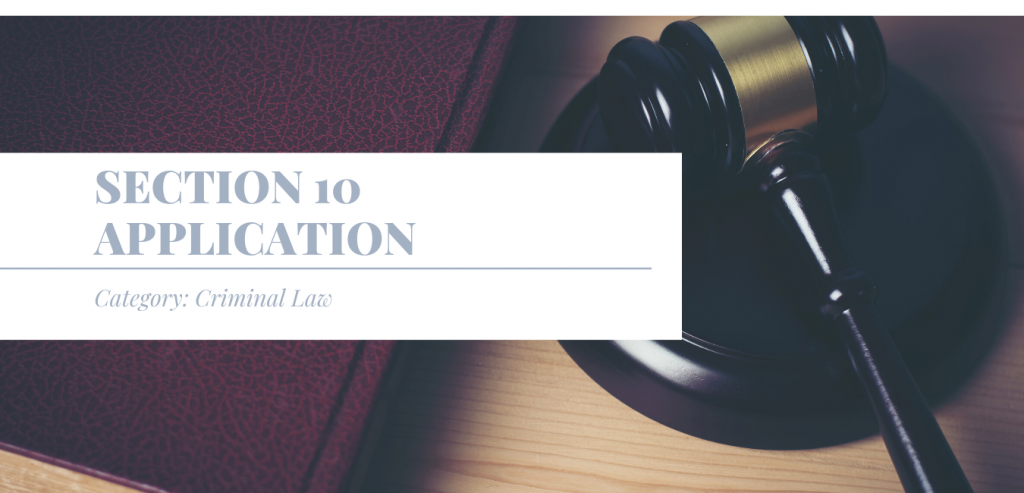What is a Section 10 Application?
In New South Wales, when a person pleads guilty or is found guilty of an offence, the Court must decide what punishment is appropriate in all the circumstances.
The Court has the discretion not to convict a person, but rather make an order under Section 10(1)(a) of the Crimes (Sentencing Procedure) Act 1999 (the ‘Act’) for an order that the relevant charge be dismissed.
There are also alternate orders that can be made under Section 10 of the Act, including discharging you under a Conditional Release Order (s 10(1)(b) or alternatively ordering that the Defendant (you) enter into an agreement to participate in an intervention program (such as the Traffic Offenders Intervention Program or an Alcohol Rehabilitation Program) and to comply with any intervention plan arising out of the program (s 10(1)(c)).
What powers does the Magistrate have?
When making a decision of what punishment is appropriate, the Magistrate will take into account the following considerations:
(a) the person’s character, antecedents (history), age, health and mental condition;
(b) the trivial nature of the offence;
(c) the extenuating circumstances in which the offence was committed; and
(d) any other matter that the Court thinks proper to consider.
The Magistrate may also make an order under Section 10A of the Act, essentially convicting you of an offence, without imposing any additional penalty.
What is a Conditional Release Order (CRO)?
In New South Wales, a Conditional Release Order (CRO), is an order made by the Court at sentencing, and is similar to a Good Behaviour Bond.
When considering imposing a CRO, the Magistrate will take into account the following considerations:
(a) the person’s character, antecedents (history), age, health and mental condition;
(b) the trivial nature of the offence;
(c) the extenuating circumstances in which the offence was committed; and
(d) any other matter that the Court thinks proper to consider.
There are some standard conditions that will usually be imposed with a CRO, such as:
(a) a condition that the offender must not commit any offence,
(b) a condition that the offender must appear before the Court if called on to do so at any time during the term of the Conditional Release Order.
There are also additional conditions that may be imposed in accordance with Section 99 of the Act, which can be found here:
http://www.austlii.edu.au/cgi-bin/viewdoc/au/legis/nsw/consol_act/cpa1999278/s99.html
In accordance with Section 95 of the Act, a CRO may be imposed for a maximum of two (2) years.
The Next Step
If you or someone you know has been charged with a criminal offence, and wants to learn more about making a Section 10 Application, we would be pleased to hear from you.
We look forward to working with you to achieve your aims and protect your interests.
Please call us on 1300 000 770 or email admin@glaser.net.au to make your appointment.



